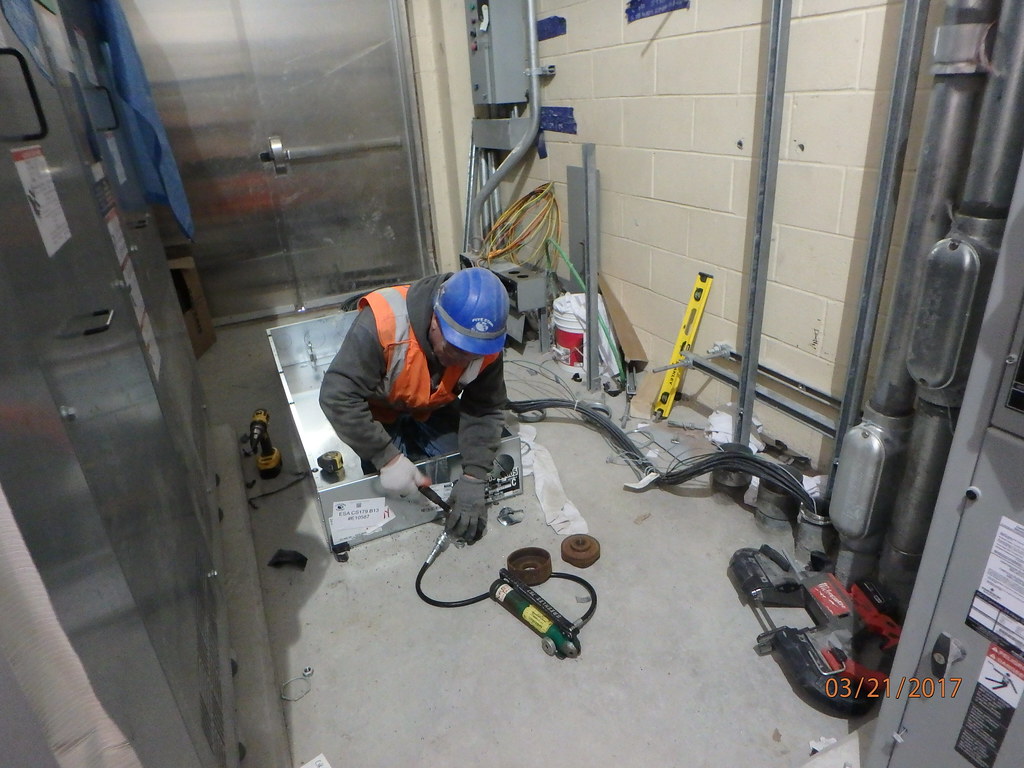Get ready to swap those late-night study sessions for on-the-job action—because college isn’t the only path to a six-figure life. Between skyrocketing tuition bills and a growing skills gap, trade careers are having a major glow-up in 2025. From diagnosing wiring puzzles to steering big rigs, these gigs let you earn solid paychecks (and street cred) without a B.A. Think of this as your backstage pass into careers that actually build stuff—both literally and figuratively. Buckle up, because we’re diving into nine trade jobs that’ll have you high-fiving your bank account instead of drowning in student debt.
1. Commercial Diver

Commercial divers take their skills underwater, performing welding, inspections, and repairs in some of the most extreme environments imaginable. It’s a physically and mentally demanding job that requires diving certification plus trade skills like welding, construction, or engineering. Divers often work on offshore oil rigs, ship maintenance, underwater pipelines, or submerged infrastructure. The pay is significant, often starting around $75,000 and rising to $150,000+ with overtime, danger pay, and specialized assignments. But the risk is real, and so is the adrenaline rush that comes with every job.
Working as a commercial diver means embracing uncertainty: irregular schedules, travel, deep-sea pressure, and hazardous conditions. Yet for those with the right mindset, it offers incredible financial upside and an unmatched sense of adventure. Many divers build highly specialized careers and eventually move into inspection, consulting, or training roles. Jobs can be seasonal but lucrative, and experienced divers are in constant demand around the world. If you want a high-paying trade with serious edge—and don’t mind a wetsuit—this career is one of the most intense and rewarding out there.
2. Welder

Metal meets passion in welding, where sparks fly (literally) and skills forge the backbone of industries from construction to aerospace. As highlighted by Fortune, young workers are banking $32 an hour—plus overtime—welding pipelines, bridges, and custom installations, with certified welders routinely earning over $70K a year. You’ll master techniques like MIG, TIG, and stick welding, apply metallurgy know-how, and even get into high-tech gear like robotic welding arms.
Welding gigs vary wildly: one week you could be on an oil-rig deck in the Gulf, the next in a climate-controlled factory fab shop. Specialties like underwater welding or aerospace fabrication come with steep pay-bumps and travel perks. And if you ever want to hang out your own shingle, running a mobile welding service or custom-fabrication shop is surprisingly doable with a small initial investment. Long story short, if you love tangible results and the chance to build things that last, welding might just melt your heart.
3. Plumber

Think plumbing’s just about plungers and clogged toilets? Think again. Per Bloomberg, the U.S. is staring down a plumber deficit that’s driving starting salaries above $55K and senior specialists over $85K—sometimes topping six figures if you chase commercial or industrial contracts. These days, fancy fixtures (smart toilets, anyone?) and green retrofits mean you’re not just unclogging showers; you’re installing water-conservation systems and geothermal heat loops that help homeowners save big on utilities.
Plus, plumbers often work on their own terms: after a few years of experience, many launch private practices or join cooperative trades, setting their own rates and hours. And since every building needs water management—from hospitals to high-rises—demand rarely dries up, recession-proofing your career in a way that staff listings can’t promise. Hardcore DIYers-turned-pros even get to flex their entrepreneurial muscles, marketing local emergency services on social media to build a loyal client base.
4. HVAC Technician

Forget all-nighters over thermodynamics—HVAC techs are the climate-control heroes keeping us cool in summer and toasty in winter. As reported by The Wall Street Journal, Louie Leonardo skipped college, earned $70K as an HVAC apprentice, and has his sights set on $175K once he’s fully licensed—all before most folks finish their master’s thesis. Whether you’re tackling commercial chillers or residential mini-splits, you’ll develop skills in electronics, refrigeration cycles, and system diagnostics that few college courses cover.
Beyond the paycheck, the HVAC industry is investing heavily in training for green technologies—heat pumps, solar-assisted systems, and smart-building integrations—which means even more specialized, higher-paying roles. The work is part-physical, part-technical, and totally essential (nobody wants a sauna-like office in July). And many employers offer tuition reimbursement for advanced certifications, so you keep leveling up without blowing through your wallet.
5. Electrician

Electricians aren’t just the sparks at parties—they’re the ones making sure the lights actually work. According to NPR, a surge of Gen Zers is ditching dorm life for conduit and circuits, opting to earn while they learn on paid apprenticeships, rather than rack up six figures in loans. Not only do electricians command an average salary north of $60K early in their careers, but journeymen working in specialized fields (think industrial controls or renewable energy installations) can push well past $90K within five years. That’s right—those twist-on wire connectors can really add up.
Worried about job security? Power grids aren’t exactly going out of style, and as older tradespeople retire, the U.S. faces a shortage that’s only going to grow. Plus, electricians often enjoy union benefits, employer-sponsored health plans, and retirement packages that most entry-level white-collar jobs can’t touch. If you crave a career with hands-on problem solving, constant variety (one day you’re rewiring a Victorian home, the next you’re installing EV chargers), and clear upward mobility, wiring could be your sparkly ticket.
6. Carpenter

Woodworking isn’t just grandma’s hobby—modern carpenters design, build, and renovate the spaces where we live and work, pulling in an average of $50K–$65K right out of apprenticeship and easily topping $80K as journeymen. According to Indeed, demand for skilled carpenters climbed by double digits in 2024, driven by the home-renovation boom and sustainable building trends favoring timber construction. From framing new homes to crafting custom cabinetry, the blend of math, artistry, and muscle is endlessly satisfying.
Carpenters often find steady work through unions, commercial contractors, or niche firms specializing in historic restorations or eco-friendly practices. And with certifications in green building (like LEED) or advanced framing techniques, you can command a serious premium. Many carpenters also leverage side hustles—think custom furniture or artisanal woodworking sold on Etsy—to pad their pockets and flex creative muscles. If you crave variety, autonomy, and the joy of seeing a structure emerge from raw materials, grab your hammer and let’s build.
7. Commercial Truck Driver

Long-haul trucking is the highway to financial freedom: drivers with a Class A CDL can start at $50K–$60K and, with experience or specialized endorsements (hazmat, oversized loads), push into six-figure territory. You’ll learn vehicle maintenance, logistics planning, and regulatory compliance—all while enjoying a level of independence most desk jockeys only dream about. Sure, life on the road has its challenges, but many carriers offer paid training, health benefits, and consistent home-time schedules.
Plus, with the rise of e-commerce and supply-chain reshoring, demand for reliable truckers is off the charts. Companies are sweetening the deal with sign-on bonuses, tuition-forgiveness programs, and even pet-friendly rigs. Finish your apprenticeship, clock your miles, and you’ll earn based on performance and seniority—no GPA required. It’s a career that literally moves the economy, and if you love the open road (and podcasts galore), it could be your fast lane to freedom.
8. Solar Panel Installer

As the green energy revolution accelerates, solar installers are in high demand, with entry-level techs pulling $40K–$55K and master installers or project managers earning up to $90K. You’ll handle site assessments, system layout, electrical hookups, and panel maintenance—all critical tasks for homes and businesses going solar. Many states offer tax incentives and apprenticeships, so you get paid to train while contributing to a cleaner planet.
Beyond the paycheck, this role delivers daily variety: one morning you’re mounting panels on a suburban roof, the next you’re troubleshooting a commercial array. Soft skills like customer education and permit navigation are as important as your toolbelt, opening doors to supervisory, sales, or design-build positions down the road. If you want meaningful work that’s future-proof and community-focused, harnessing sunshine may be your brightest idea.
9. Dental Hygienist

Surprised to see a dental role here? Dental hygienists often only need an associate degree or certificate—and can earn $75K–$100K with benefits galore. You’ll perform cleanings, X-rays, and patient education, all while building rapport and transforming smiles. Demand is booming thanks to an aging population and increased focus on preventive care, so job openings are widespread in private practices, public clinics, and even corporate wellness programs.
With smooth scheduling (most offices close by 5 PM) and opportunities for part-time or per-diem work, it’s a career that balances income and lifestyle—no weekend lectures required. Hygienists also have clear pathways to advance: think public health, sales rep for dental products, or even transitioning to dental therapy in some states. If you’re detail-oriented, personable, and keen on health sciences without the debt load of a four-year degree, dentistry’s dream team needs you.
10. Elevator Installer & Repairer

Elevator techs might be the most underrated trade—these pros install, maintain, and fix the lifts that keep skyscrapers moving. Starting wages hover around $60K, with senior mechanics and supervisors earning upwards of $100K thanks to specialized union training programs. You’ll delve into electronics, hydraulics, cable systems, and strict safety protocols, making each day a puzzle to solve.
Because elevators are safety-critical, ongoing certification and continuous education are built into the gig, often funded by employers. And as urban centers add more high-rises and retrofit aging systems, job security is rock solid—and frequently union-backed with top-tier benefits. If you want a trade that literally elevates your career (and sometimes your commute), climbing the elevator-tech ladder is a high-rise move.
11. Power Plant Operator

Power plant operators are the unsung backbone of modern infrastructure, controlling the massive systems that generate electricity across the country. This role doesn’t require a four-year degree but does demand strong technical skills, focus, and attention to safety. Operators monitor equipment, regulate output, and respond quickly to any system malfunctions to keep power flowing reliably. Many learn through paid apprenticeships or vocational programs, then work their way up to six-figure earnings with experience. With energy demands growing and skilled operators aging out, it’s a field ripe with opportunity.
While the job can be high-pressure and sometimes requires odd hours or on-call shifts, the compensation reflects that responsibility. Salaries often start around $70,000 and rise quickly with overtime, union membership, and plant specialization. Workers in nuclear, hydroelectric, or renewable energy plants may command even higher pay. Plus, the role tends to come with strong benefits packages, pensions, and job security. If you’re detail-oriented and thrive in a high-stakes environment, this trade could offer financial stability and a powerful long-term career.
12. Construction Manager

Construction managers oversee complex building projects from start to finish, acting as the general on the ground for everything from suburban homes to high-rise towers. While many begin as tradespeople, experienced builders can climb into management roles without ever stepping foot in a university. The job involves coordinating contractors, managing budgets, enforcing safety protocols, and keeping projects on schedule. It’s fast-paced, detail-heavy, and deeply rewarding—especially for those who thrive on bringing structure to chaos. Salaries often exceed $90,000, with the potential to break six figures in high-demand cities or large-scale developments.
What sets construction management apart is the blend of field work and office strategy—it’s not just physical labor, but real leadership. The best in the business are sharp communicators who can juggle suppliers, city permits, and client expectations all at once. With infrastructure booming and skilled managers in short supply, the demand in this trade is rising quickly. Those with certifications like PMP or OSHA training can command even higher salaries. If you’ve got experience on the tools and a head for logistics, this is where hustle turns into real money.
This article is for informational purposes only and should not be construed as financial advice. Consult a financial professional before making investment or other financial decisions. The author and publisher make no warranties of any kind.








